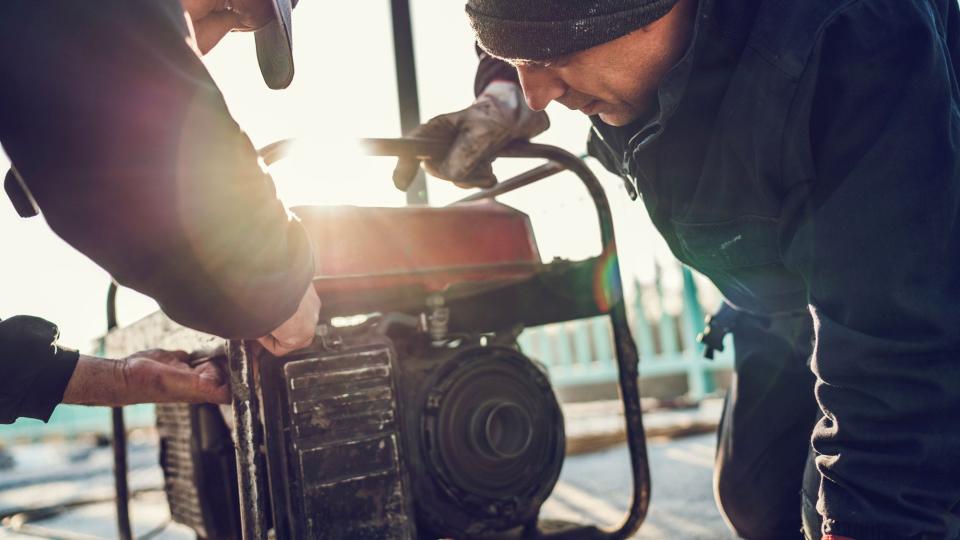Now that you’ve bought a generator, learn how to properly use it
Got a new generator?
You felt lucky when you scored a generator. And it worked well, didn’t it? You plugged in a couple of extension cords, kept the refrigerator humming and got to watch TV.
Unless you are knowledgeable about using machines like this, and the electrical load you can safely conduct through various sizes and lengths of extension cords, you may be a lot luckier than you imagine.

If you connected your generator directly into your home and didn’t have a licensed electrician, make the connections with proper equipment, according to the National Electrical code, now is the time to call a licensed electrical company. Your operating generator could injure or kill a nearby power company worker, if proper electrical equipment is not in place, when they are working night and day to restore your electricity. You can also have a fried generator when the power comes back on, in the absence of that equipment. Electrical work is serious and not a job for amateurs.
Now look at the extension cords you used, are they grounded? That means they have three prongs on each end; two are blade-like while the third one is round. If they don’t have all three of these, you don’t want to use them again, ungrounded extension cords are dangerous. The second thing to ascertain is the gauge of wire inside your cord. The heavier the gauge or thickness of wire in an extension cord, the farther they can safely and effectively carry an electrical load.
If you use a small gauge extension cord, you can have voltage drop. This means your refrigerator is running, but not well, because it’s not getting the power it needs, which can put significant wear on it; the same with other devices.
Where did you run the generator? It must be outside and not in your garage, even with the door open. The manufacturer paid experts to provide information on safe operation of the generator. Now that your power is restored, take a few minutes to re-read those instructions.
If you put it in a carport or screened porch, you will most likely see that’s a no-no. Carbon monoxide (CO), the gas produced by running your generator, is colorless, odorless, heavier than air and responsible for many deaths every year. It also displaces oxygen in a confined area, so you absolutely must operate the generator outside. If yours is not supposed to be out in the rain, just wait until the rain stops, instead of compromising your family’s safety
I had a small generator more than 20 years, so here are a few suggestions. Buy non-ethanol gasoline and use a preservative additive. Small engines like your generator, outboard motors, and chain saws don’t operate well, in the long run, with normal gas that has ethanol. A preservative, like the brand Stabil, will allow you to have useable gas much longer than if you don’t add it.
Finally, make a note in your calendar to crank up your generator once a month for 10 minutes or so. If you don’t do that, when a storm comes along, you’ll be in the doghouse when your neighbor’s generators are humming and yours won’t. I speak from experience; that was me in the doghouse during one storm at long time ago.

Kip Carpenter, a Seminole grad, has been a remodeling contractor in Tallahassee, FL., for almost 35 years, and the father-stepfather to two daughters, both third-generation Seminole graduates.
JOIN THE CONVERSATION
Send letters to the editor (up to 200 words) or Your Turn columns (about 500 words) to letters@tallahassee.com. Please include your address for verification purposes only, and if you send a Your Turn, also include a photo and 1-2 line bio of yourself. You can also submit anonymous Zing!s at Tallahassee.com/Zing. Submissions are published on a space-available basis. All submissions may be edited for content, clarity and length, and may also be published by any part of the USA TODAY NETWORK.
This article originally appeared on Tallahassee Democrat: Now that you’ve bought a generator, learn how to properly use it

